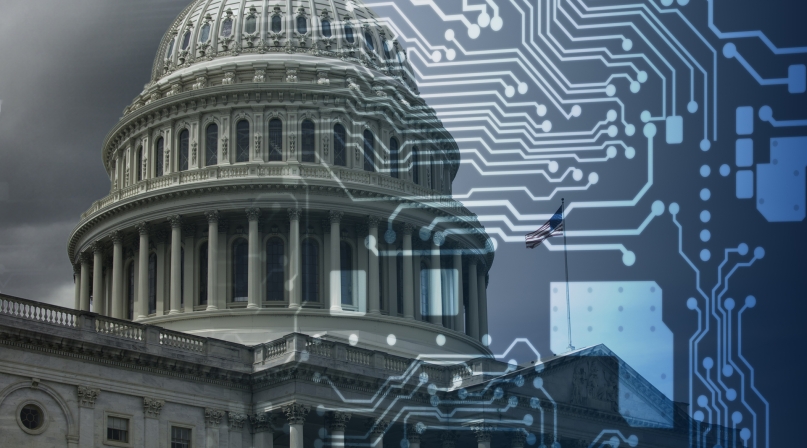NACo Publishes 2025 AI Policy Priorities Primer
Author

Seamus Dowdall
Upcoming Events
Related News

Key Takeaways
On December 4, NACo published its Key Artificial Intelligence (AI) Policy Priorities for Counties for the 119th Congress, building on the policy platform proposals voted on and passed at NACo’s 2024 Annual Conference. AI and Generative AI (GenAI) technologies have brought new opportunities for counties to automate existing practices, while also posing new challenges and risks that should be thoroughly addressed. Counties stand ready to serve as intergovernmental partners in the continued policy approach to AI and GenAI technologies.
Key AI policy priorities for counties include:
- Establishing an intergovernmental governance structure that addresses the various uses of generative AI across different sectors.
- Dedicating a new information sharing analysis center (ISAC) for the creation of resource hubs and task forces, and development of an ongoing communication channel for intergovernmental coordination.
- Providing direct funding assistance to promote digital literacy and best practices, assistance for counties and workforce development.
- Dedicating support mechanisms to federal and local government agencies promoting the use of AI for public services.
- Mitigating the negative uses of GenAI in the election space.
- Strengthening funding resources and regulatory oversight at independent agencies to combat mis- and dis-information geared toward consumers.
- Implementing federal guidance clarifying that liability for outputs causing discrimination rests with the owners and operators of AI models.
- Adopting and disseminating data privacy governance standards and best practices across all levels of government.
- Requiring public engagement and participation in AI policy making processes to ensure the voices of diverse stakeholders are heard and considered.
As county responsibilities are vast, ranging from owners of critical infrastructure such as roads and bridges to providing essential human services, counties have a vested interest in ensuring the governmental use of AI and GenAI will be deployed safely and reliably across all sectors and levels of government.
Counties support legislation for a national AI education campaign, focused on risk management, consumer education, and workforce training to better prepare individuals and counties for the shifting landscape. NACo is also signed on to the of the “Take It Down Act” (S. 4569), which passed in the Senate on December 3. Introduced by Sen. Ted Cruz (R-Texas), this bill criminalizes non-consensual intimate image-sharing and serves as an example of how counties push back against clear, nefarious uses of the technology.
Counties are committed to working with the new administration and Congress to advance these policy priorities in a bipartisan manner. Counties will continue to evaluate initiatives from the White House and Congress, such as executive orders, new policies energy reform and land use, and research and development initiatives on AI in the coming year.
Resource
AI County Compass: A Comprehensive Toolkit for Local Governance and Implementation of Artificial Intelligence



